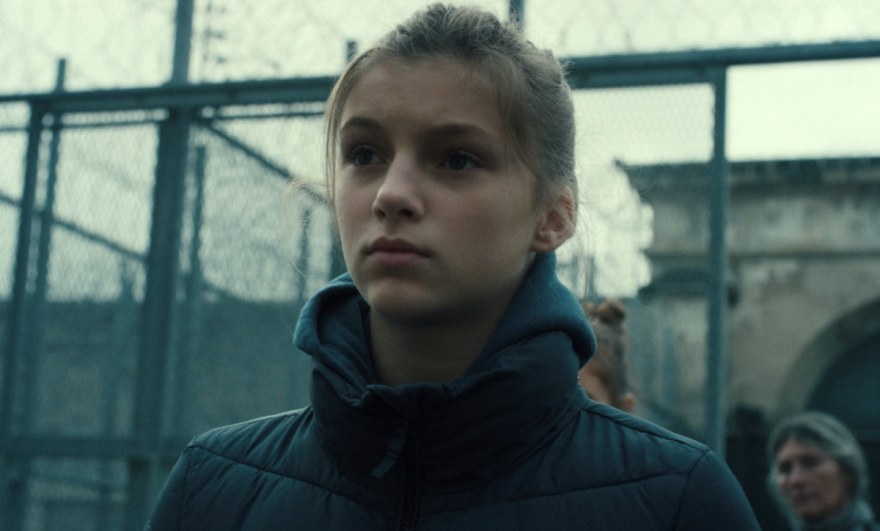Night Cap with Marlon
An interview with Jessica Palud, director of Marlon
How did you come up with the idea for Marlon?
I wanted to talk about prisons, but not necessarily from within. I saw how my grandfather’s imprisonment affected our family, and that’s the point of view that I wanted to adopt. This film is really a family portrait.
Why did you want to talke about a mother-daughter relationship?
It seemed like a given to me. Few human relations can match the intensity of the bond between a mother and her teenage daughter, be it negative or positive. That’s where my identity as a woman was built.
What interested you about the limitations put on their relationship by the mother’s imprisonment?
When you put a parent-child relationship to the test through prison, you take a human risk – it means you can’t cheat. You have to tackle every question head on. How do you build that model? How do you deal with that absence? Can Marlon do any better than her mother did? Can she do things differently? In what ways will imprisonment twist their relationship?
How did you work on the sound and the whispering nature of much of the dialogue?
The sound was a real challenge. We recreated the atmosphere of female prisons during sound editing since we shot the film entirely in a men’s prison. As for the whispering, that translates my desire to grasp the characters’ emotion as closely as possible. From the writing stage through to directing the actors (I’m thinking primarily of Flavie, who plays Marlon), I wanted to hear those words that are murmurred, the words that stay lodged in your throat, the ones that you hold back. I wanted to hear the aptness of what we have difficulty saying in life. It wasn’t always easy for the sound engineer…
Why did you choose not to explain why Marlon’s mother was in jail? How would that have changed things?
From the beginning we weren’t quite sure. In the end, I decided it wasn’t the focus – maybe for some viewers it is, but I wanted to follow Marlon from the beginning to the end. A daughter doesn’t see her mother as guilty. What she does fault her on is what affects her directly – the absence and separation.
How did you work on the shots, their length and the whole pacing?
I focused on the precision of the story, always being as close as possible to what the scene tells, trying to figure out where to put the camera without it being seen. As for the length, I always let things drag a bit, I like silences, accidents. Rhythm is a type of music, each one has its own.
What sort of freedom would you say the short format allows?
A film is either necessary or it’s not, and it’s up to each of us to keep our creative liberty. After that, there’s obviously much greater freedom for example in casting…
If you’ve already been to Clermont-Ferrand, could you share with us an anecdote or story from the festival? If not, what are your expectations for this year?
It’s my first time! I’m expecting… to have a good experience above all, to meet people, to laugh and see some good films. It’s always a special feeling to share your film at a festival. And Clermont-Ferrand will surely be very impressive.
Marlon is being shown in National Competition F4 and the school screenings.








